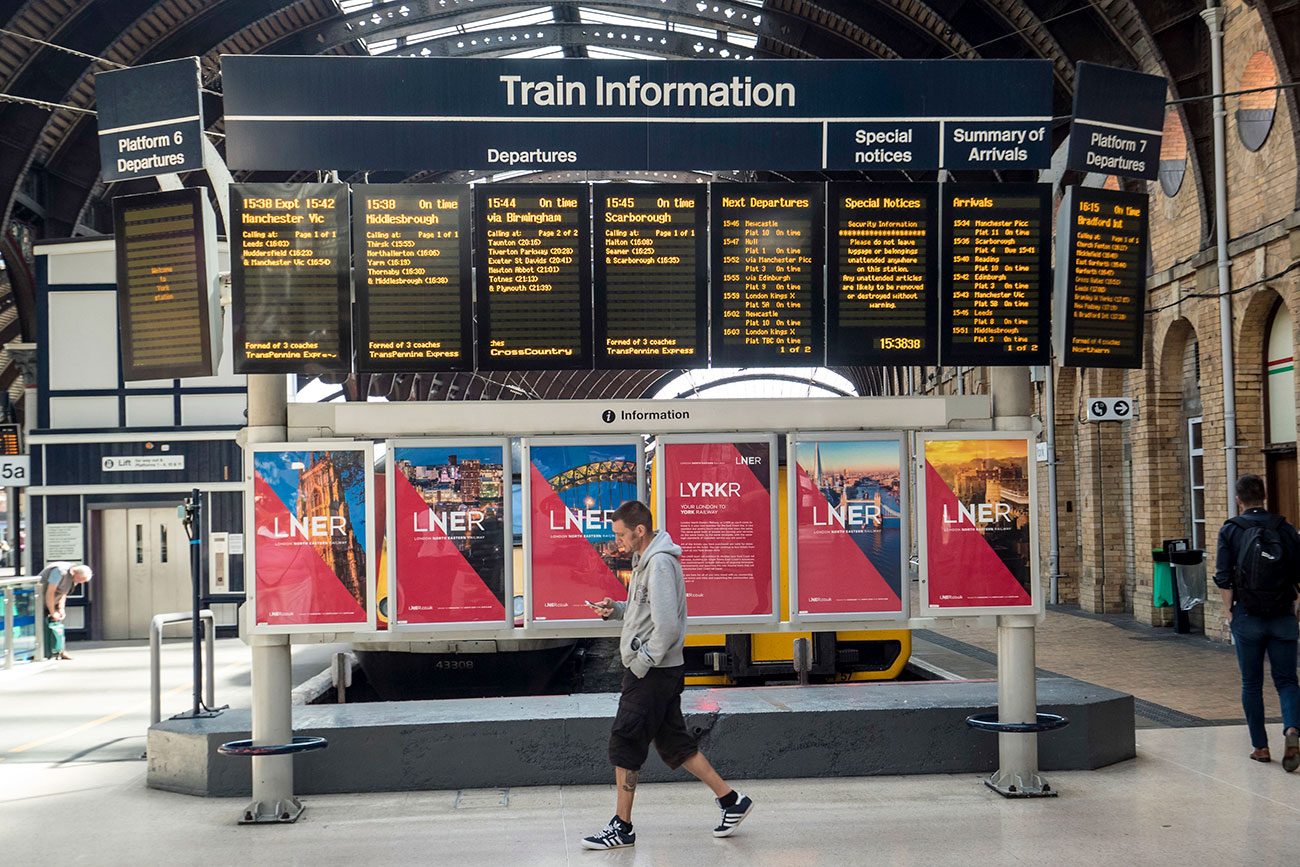The first LNER trains have departed from York station after the East Coast Main Line came back under public control today (Sunday, June 24).
Trains on the London and Scotland route are being run by the Department for Transport’s Operator of Last Resort, branded as London North Eastern Railway (LNER).
It follows the failure of the Virgin Trains East Coast (VTEC) franchise.
The first LNER service departed from Newcastle to London King’s Cross at 7.54am on Sunday.
LNER will operate until a public-private partnership takes responsibility for both trains and track operations in 2020.
‘Business as usual’
All VTEC staff have been transferred to LNER as part of the transition.
Managing director David Horne said:
Our immediate priority is ensuring a smooth transition for customers, staff and the communities we serve.
Our message to everyone who depends on this service is that it is business as usual.
Existing tickets are still valid on our services, and new tickets can be bought in the same way. The same scheduled trains are also in operation.
VTEC, a joint venture between Stagecoach (90%) and Virgin (10%), began operating in March 2015.
Welcome to @LNER!
Our first two services have departed and are now heading to London – you’re in good hands. pic.twitter.com/g4ljbH1NrK— David Horne (@DavidHorne) June 24, 2018
The firms agreed to pay the Government £3.3 billion to run trains until 2023, but the contract was ended prematurely after they failed to achieve revenue targets.
The switch from VTEC to LNER is costing an estimated £8 million, which includes marketing, rebranding and IT set up.
VTEC, a joint venture between Stagecoach (90%) and Virgin (10%), began operating in March 2015.
The firms agreed to pay the Government £3.3 billion to run trains until 2023, but the contract was ended prematurely after they failed to achieve revenue targets.
Third failure

VTEC is the third private operator to fail to complete the full length of a contract to run East Coast services.
GNER was stripped of the route in 2007 after its parent company suffered financial difficulties, while National Express withdrew in 2009.
Trains were run by the DfT for six years up to VTEC taking over.
The Rail, Maritime and Transport union demanded a permanent end to rail privatisation.
General secretary Mick Cash said:
If you want to see the failures of Britain’s privatised railway system writ large look no further than the East Coast Main Line where a succession of expensive corporate disasters have seen this crucial inter-city service lurch from crisis to crisis.
The only stable period in the past two decades came under the publicly owned Directly Operated Railways.
What we need now is permanent public ownership and not some short-term lash-up as a holding operation before Chris Grayling gives another bunch of spivs and speculators a spin of the wheel.
Transport Secretary Chris Grayling refuted accusations from Labour and trade unions that his decision to end VTEC’s franchise early was a “bailout” worth £2 billion.
“Stagecoach will be held to all of its contractual obligations in full,” the minister said.
